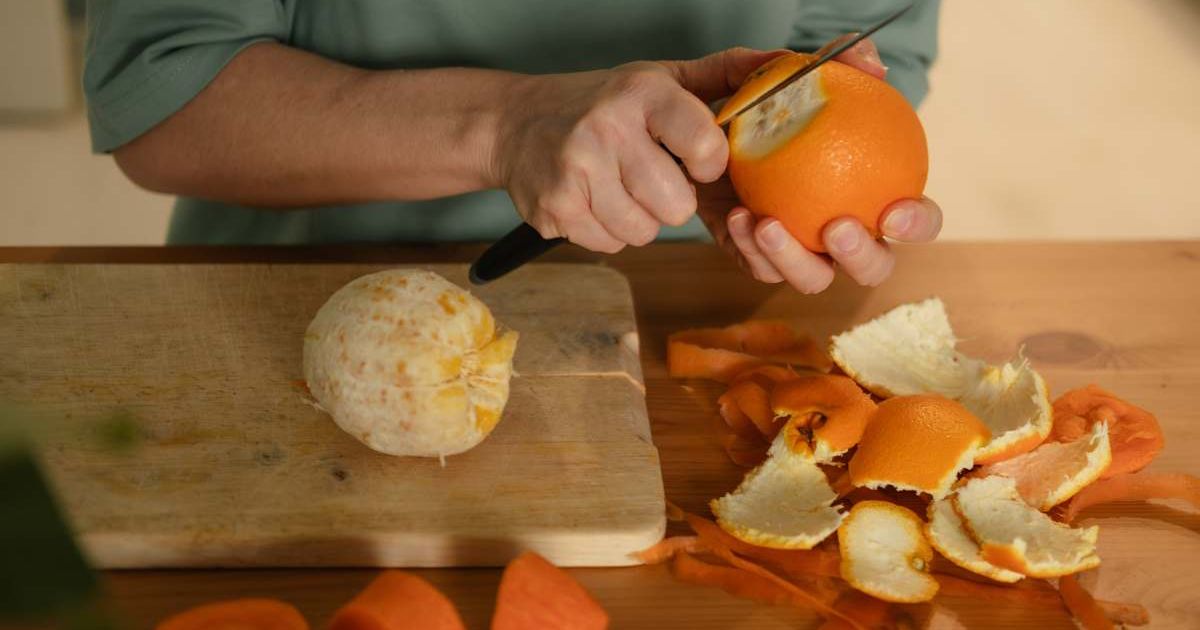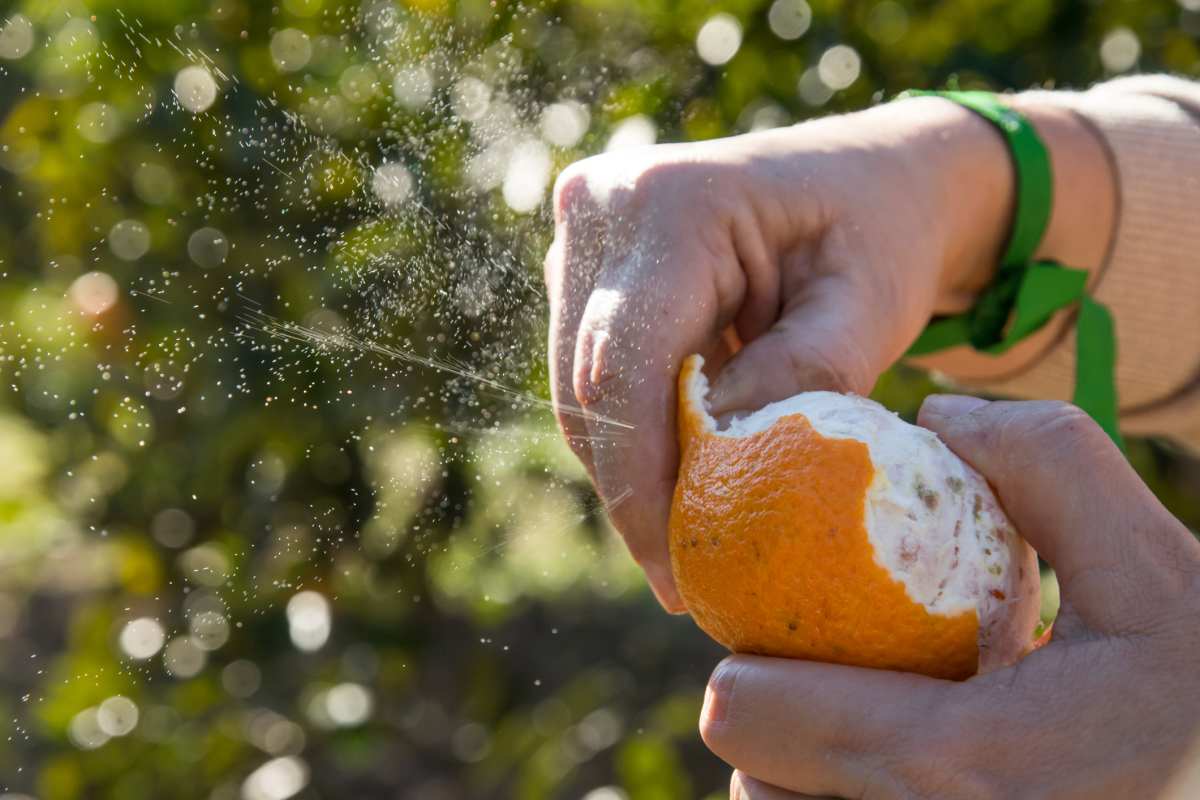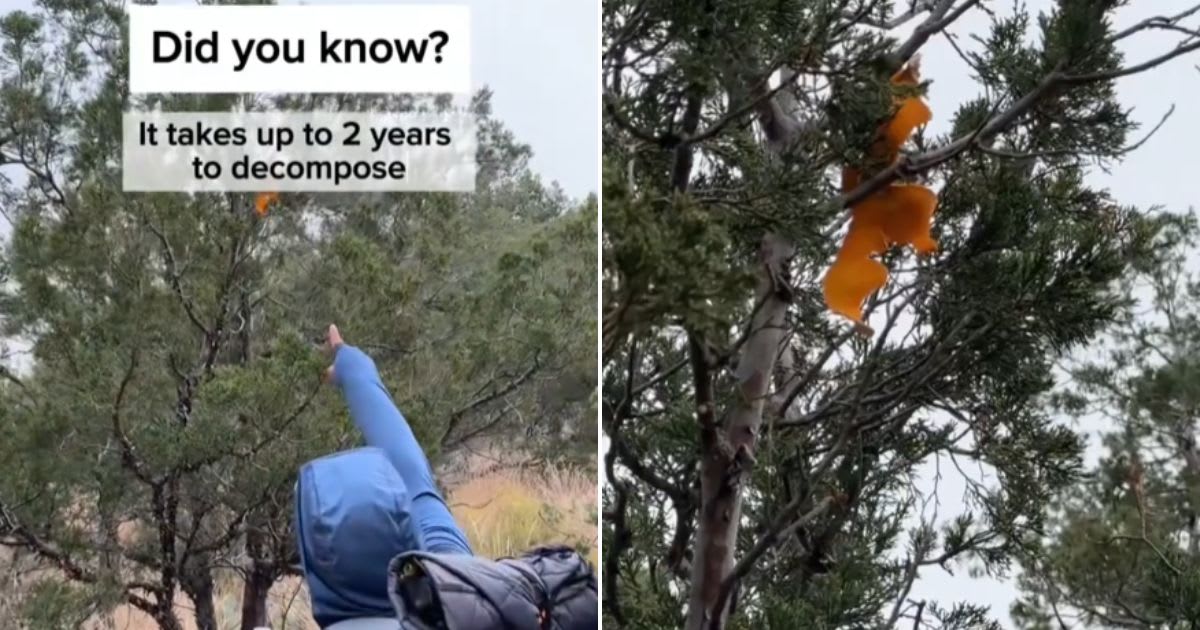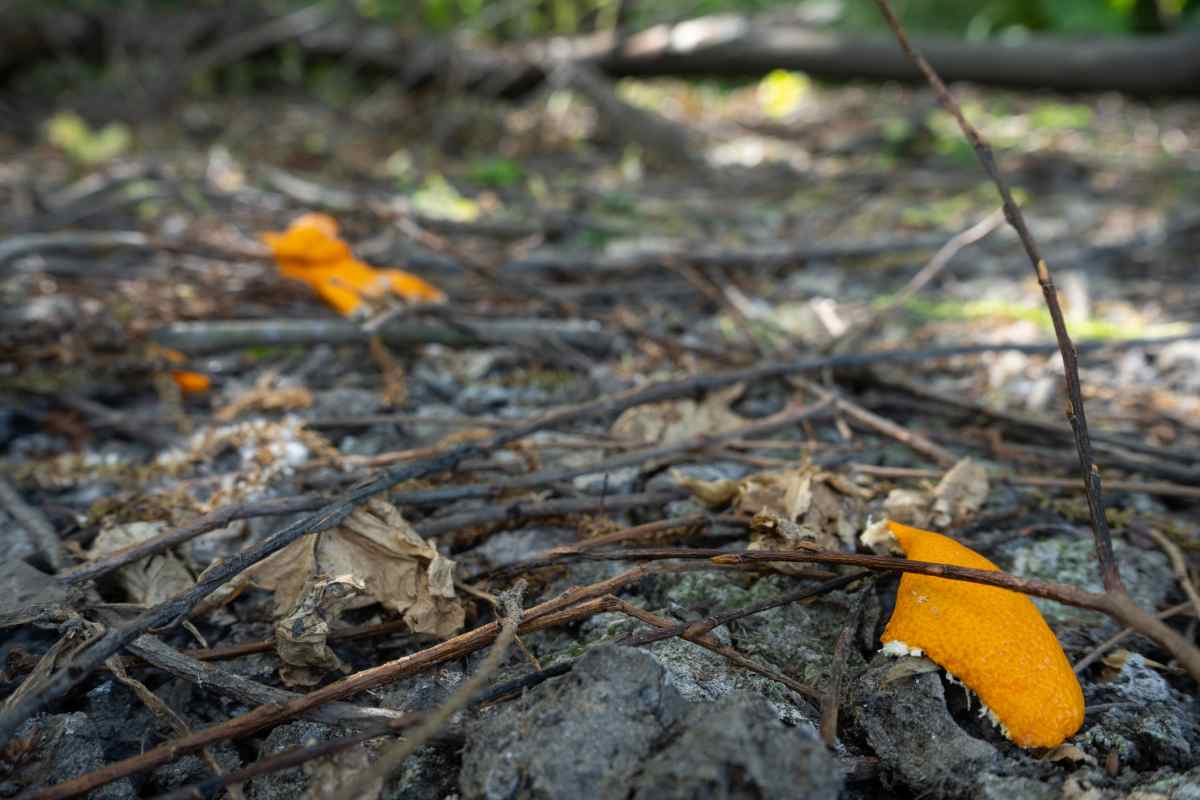You May Think Tossing an Orange Peel is Harmless But a TikTok Video Shows How It Harms Wildlife

In nature, especially in the wild, many everyday items take longer to decompose than we might expect. While things like plastic and microplastics are anyway harmful to nature, even things that seem harmless, like fruit peels or paper, can linger in the same place for months or even years. Recently, a TikTok video shared by hikers surprisingly shows that something as small and harmless-looking as an orange peel can take up to two years to decompose fully in the wild. It was posted by Leave No Trace (@leavenotraceorg), a group dedicated to encouraging eco-friendly practices in outdoor activities.

While many people assume food scraps vanish quickly, the reality is quite different, with peels of certain fruits and vegetables leaving a lasting mark on the environment. The video also highlights the importance of packing out everything brought on a hike, no matter how small it seems, and disposing of it at a designated place. As reported by The Cool Down, the creator of the video explains that while orange peels are natural, they linger around for a long time because the wildlife isn't adapted to eat them, and leaving them behind can draw animals into areas where people spend more time.

Towards the end of the video clip, the text overlay reads, "With over 13 billion trips into the outdoors every year in the United States, it's essential we all contribute and do our part by preserving and protecting the outdoors." This was also confirmed by Jon Stuart-Smith, who works with Parks Canada on human-wildlife conflicts. He claims that animals are often drawn to anything edible or carrying a strong scent. He said, "We think that if we don't see things that the problem must go away, and natural food sources like banana peels and apple cores would just eventually decompose."
@leavenotraceorg With billions of outdoor trips each year, food scraps add up—impacting wildlife and the local ecosystem. One orange peel may seem harmless, but it can take up to two years to decompose. Human food alters natural behaviors, draws animals into where we recreate, and disrupts their natural diet. #EnjoyYourWorld #LeaveNoTrace ♬ original sound - Leave No Trace
As reported by CBC News, Smith added, "But these do take quite a long time to decompose, so they can be attractants and are generally found before they decompose by wildlife." He further warns that food waste on trails or roads can put animals' lives at risk. "It could attract them to the roadsides, where they then run the risk of being struck on the highways. Or they also can become accustomed to looking for food along the highway and then might approach vehicles," he said. Additionally, when these animals become accustomed to eating human food, they lose their natural fear of humans. This behavior can sometimes make them a threat to human safety.

Meanwhile, doing your share to keep trails, beaches, and other natural wonders free of litter is simple and takes little effort. For instance, you can simply pack out everything you bring in when your trip concludes, including organic waste such as fruit peels or nut shells. Carrying a small bag for all waste and disposing of it properly later helps keep wild spaces clean and safe, helping both humans and animals in the long run. One can also carry a reusable container for scraps.
More on Green Matters
There’s a Secret Benefit to Putting Orange Peels in Your Garden — and Not Many Know About It
How Trucks Full Of Orange Peels Helped Regrow Costa Rica's Forest